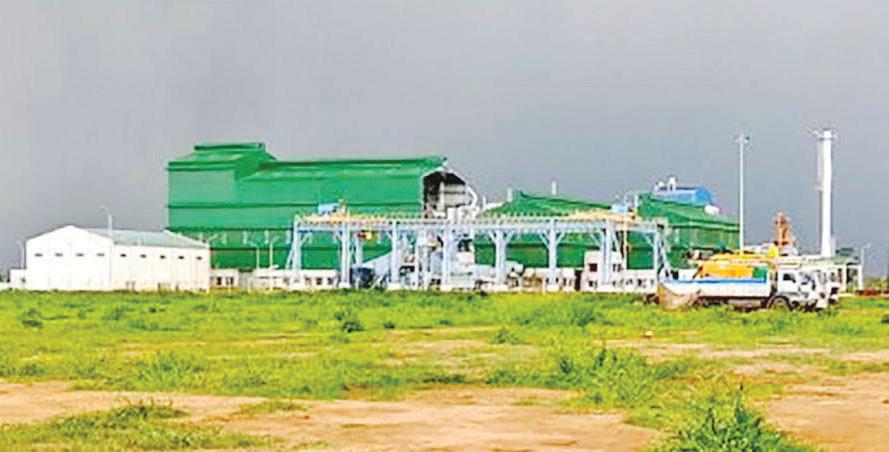Africa-Press – Malawi. Salima Sugar Factory is in breach of Malawi’s employment laws as it has filled up some positions with foreigners, mostly from India, when it could source the skills locally. The Employment of Expatriates and Employment Act provides that areas where the country does not have adequate skills for it can take in expatriates.
But while Indian nationals occupy almost all influential positions at the company, we have also found that they occupy even some positions which would have easily been taken up by Malawians.
For example, the positions occupied by Indians, whose names we have, include systems and procurement manager, procurement specialist, project coordinator, general manager responsible for security and administration, administration manager and chief engineer.
The company also has positions of chief electrical engineer, irrigation manager and farm manager filled by Indians. Insiders have also, tipped Malawi News that some Indian managers declare to government to be coming into the country as consultants when in actual fact they come to work full time as heads of departments.
According to one source, a few of these try to go home every six months or so. “But others like the Chief Electrical Engineer, go home only once a year to make it look like he is on an annual leave,” the source said.
The company has Charles Thupi, Secretary and Corporate Affairs Manager and reportedly the only Malawians occupying a senior position in the company. Another source claimed his position is only on paper.
“He is only used for operations aimed at cleaning the company image,” he said. However Thupi denied that the company recruits Indians even for the no-special-skills positions.
“We do not have any Indian expatriates who are low grade workers,” he told Malawi News in a questionnaire. According to him, the expatriates are skilled workers, have technical expertise, adequate work experience and are either managers or technicians.
We took the matter to Deputy Minister of Labour Vera Kamtukule who said they would have to find out if the company is complying with the employment laws of the country.
“When a company is coming to invest in the country, there is an allocation, depending on its size and amount of investment, the specific amount of expatriates they can bring in the country.
“So for Salima Sugar Company, I would ask for some time to find out how many were they supposed to recruit and if they are following that,” Kamtukule said.
William Chiponde, National Public Relations Officer for the Department of Immigration and Citizenship Services, justified the expatriate contingent at the company.
“The company has not flouted any law, considering that the expatriates in question have been issues with employment permits as required by the law,” he said.
It is estimated that there are over 60 foreigners in the company. However, Chiponde said investors are allowed to fill up five key posts with expatriates. He said that more posts are considered depending on several factors which he did not mention.
In July last year, Minister of Homeland Security Richard Chimwendo Banda, acting on information of the expatriate situation at the firm, toured the company where he expressed dismay with illegal immigrants working there without work permits.
His visit resulted in 67 Indian and Pakistan nationals being arrested for allegedly working at the company without work permits and without passports. And in an interview Friday, Chimwendo Banda said they have given the company up to December this year to transfer some labour skills to Malawians.
“When we came in [in government], we found out that the company had more than 240 expatriates. We had to reduce the number to around what you are talking about.
“But we have given them up to December to transfer those skills to Malawians. This follows recommendations that a team of immigration, labour and industry experts that looked into the issue made. That is why we still have others [expatriates] at the company,” Chimwendo Banda said.
He further said they have come up with a mechanism that a company operating in the country should not have more than 10 expatriates. In this arrangement, five will be on permanent employment while another five should work on temporary basis, he said.
In April this year, the company courted controversy when it brought into the country 40 people from India through Kamuzu International Airport amid restrictions related to Covid-19.
At that time, the world was grappling with the virulent Delta variant of the virus which was first detected in India in 2020. It emerged that a laboratory technician at the factory had conducted tests on the Indians and found 16 of them positive for coronavirus. Government ordered retesting of all of them.
Salima Sugar Company Limited, a product of government’s Green Belt Initiative, is a public limited company registered under Companies Act, Malawi. Government owns 40 percent of the company’s shares while 60 percent of the shares are held by Aum Sugar Co. Ltd.
For More News And Analysis About Malawi Follow Africa-Press






